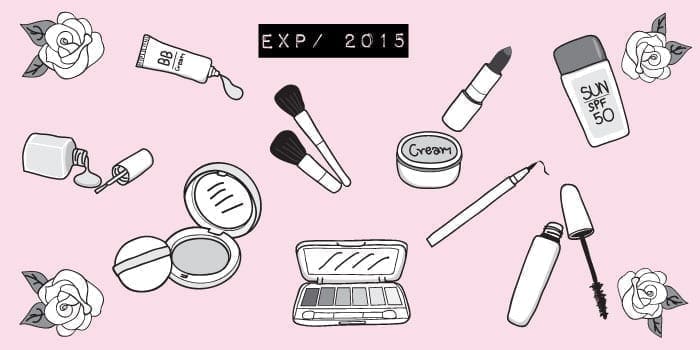Makeup expiration dates are one of my favorites things to willfully ignore, especially when they concern pricey makeup or a sold-out product I’m particularly in love with. There’s nothing more frustrating than forking over money for brand new lipstick when I still have half of a perfectly usable-looking expired tube of the same shade at home.
That said, health matters, and I can’t help but be a little paranoid about whether I’m putting myself at risk when I stretch out the life of my concealer a little longer than I should.
Researchers at London Metropolitan University teamed up with Poshly and travel-sized (or, as they say, right-sized) makeup company Stowaway Cosmetics for a recent study, and the results have me seriously reconsidering what I thought I knew about expired makeup. The study found that expired cosmetics can contain potentially deadly bacteria (!) and even cause breakouts. Scientists also discovered that 82 percent of women who toss their expired makeup feel guilty about doing so. I’m definitely one of those women.
This whole conundrum raises a lot of other questions: Who actually remembers the exact date they bought their makeup to keep track of when it expires? Is the makeup still safe if you keep it just a week or two past its expiration date? Is our health going to take a terrible turn if we don’t start replacing it more often!?
To set the record straight, I turned to someone who knows a thing or two about the subject: celebrity makeup artist Scott Barnes. Barnes spends most of his days surrounded by cosmetics and is a spokesman for Alcon AIR OPTIX COLORS contact lenses (you know, the ones that let you try a whole new eye color to match your outfit), so he’s about as expert as it gets on the life of our favorite beauty products—especially eye makeup, which is known to expire the quickest. I asked him some of my most nagging questions about beauty product health.
Is there ever a time when it’s safe to ignore the expiration dates on our makeup?
“Most products do have their recommended expiration time frame. Powder products tend to have more flexibility. Products have been tested for the recommended time for a reason.”
How often should we replace common beauty products like lipstick, blush and mascara?
“Lipsticks should be replaced every 3-6 months. Mascara consistently needs to be replaced every 3 months at the very latest. Blush can have a longer timeframe, usually 24 months.”
I’ve heard it said that eye products like mascara and eye liner are the most important products to regularly replace, is this true? Is there any way to make sure our eyes are extra healthy when it comes to product use?
“Yes, this is very important. Make sure you’re not using mascara or liquid/gel eyeliner past 3 months.” (And Barnes can’t help but throw in an extra tidbit of advice for contacts wearers: “Always insert your Alcon AIR OPTIX COLORS contact lenses before doing your eye makeup.” And don’t wear them past their their expiration date—”Alcon AIR OPTIX COLORS contact lenses are for daily wear for up to 30 days. Always read the package insert and follow the instructions for use provided by an eye care provider.”)
Is there anything we can do to make our beauty products stay fresh longer? Is the age-old ritual of putting lipstick and nail polish in the fridge actually effective?
“No research has shown the effectiveness of storing makeup in the fridge. Most cosmetics should be stored at room temperature. Refrigeration does not always equal preservation. Try always putting caps back on tight and using clean tools to prevent bacteria growth.”
To protect your health when doing your makeup, stay vigilant! Check the packaging on your favorite products for expiration dates, but keep in mind that cosmetic companies are not legally required to share that information, so the best way to stay safe is to become your own biggest health advocate. Be on the lookout for any changes in the makeup’s color or consistency and make sure you’re fully sealing the product when you store it. When in doubt, check with the FDA for tips and more information.




































